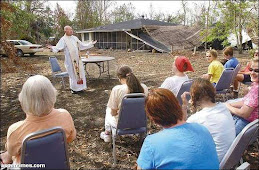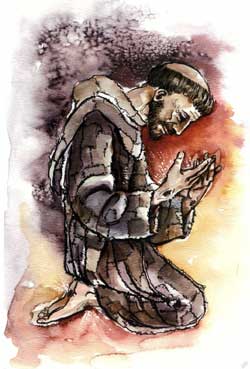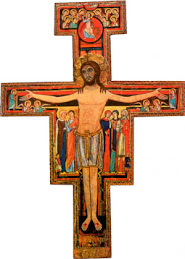The Volterra text, written by Saint Francis, around 1209-1215, is an exhortation given to those first penitents who came to Frances wanting to share in his Gospel way of life. This exhortation to the Brothers and Sisters of Penance, as they were called, is the Prologue to The Rule of the Secular Franciscan Order. It has two chapters. The first chapter is addressed to those who do penance, and the second chapter, to those who do not do penance. The Volterra text may be read on the website for Our Lady of the Pearl at http://www.ourladyofthepearl.com/rule.htm.
My primary focus always has been the first chapter because it is more positive and uplifting and provides spiritual direction, written briefly, on how to live a life of penance. In this chapter, Francis puts the commandment of love as the foundation for the life of penance. To do penance is to love God and one's neighbor. Then, one must resist the sinful tendencies of our fallen nature, the cause of "vices and sins." This process is not possible through human effort alone. A sacramental life, the source of grace, especially the Eucharist, is necessary. One must "bring forth fruits worthy of penance"; that is, one must act in conformity with the conversion that has been accepted. The result of such conduct will be the attainment of that happiness which man desires and will effect the person's sharing in the trinitarian life of God. This is the essence of the life of penance.
- Love God
- Love one’s neighbor
- Resist the sinful tendencies of our fallen nature
- Participate in the sacramental life, especially the Eucharist
- Act in conformity with the conversion that the person has accepted (worthy fruits of penance)
My next post will be on the second chapter of the Volterra text, concerning those who do not do penance. I will also give the name of a very good novel I have just finished reading on the main character's frightening visit to hell, very much related to the second chapter by Saint Francis. The book is written by an award winning journalist and best-selling Catholic author, a summa cum laude graduate of Yale and PhD from Emory.
Peace and All Good,
Little Scribe


















No comments:
Post a Comment